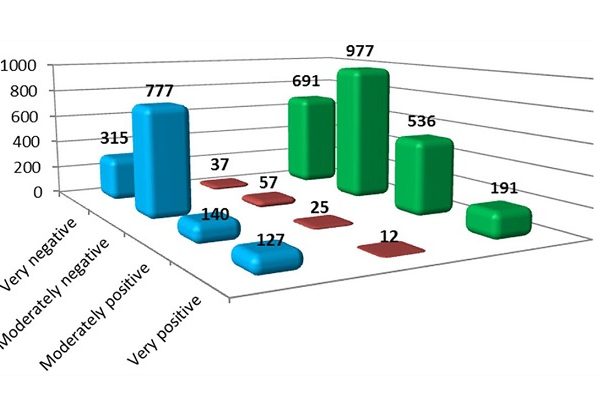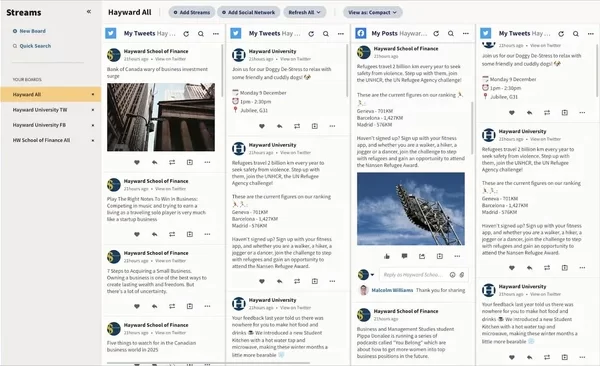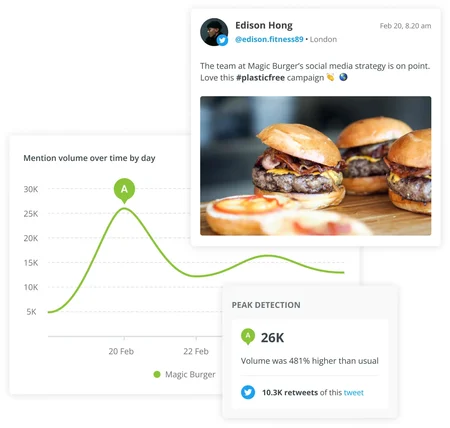How Social Listening Empowers NGOs and Impact-driven Projects in Africa

In today’s fast-paced world filled with information, understanding the changing needs of communities is more important than ever. Social listening tools are essential for organizations aiming to make a significant impact.
Social listening is more than just tracking social media mentions. It involves using advanced methods to collect and analyze online discussions about specific topics, keywords, and brand names. By using these tools, NGOs and other impact-focused organizations can gain valuable insights crucial to their work.
Social listening refers to monitoring and analyzing your social media profiles for customer feedback; direct mentions of your brand; and any conversations with relevant keywords, topics, competitors, or industries. You can use social listening to uncover insights that help determine the best ways to improve your social media strategy, brand perception, positioning, and social presence (Hubspot).
Social media platforms are full of personal experiences, where people talk about their problems, share stories, and express what they want. By examining these conversations, NGOs can understand the specific issues their target communities face. This real-time information helps them tailor their programs to address the most urgent needs. Social listening helps organizations grasp public opinion about their work and causes. This feedback allows them to adjust their messages, address concerns proactively, and build stronger relationships with their supporters.
Improving Strategies
Improving strategies involves a nuanced approach to utilizing the wealth of data available through social media analysis. By closely examining online discussions, NGOs can detect emerging trends and critical issues that are starting to gain attention. This kind of insight allows these organizations to pinpoint the most opportune moments to initiate advocacy campaigns. Timing is crucial in advocacy, and launching a campaign when public interest is peaking can significantly enhance its effectiveness, helping to rally public support and drive conversations that can influence policy discussions.
Furthermore, social listening tools enable organizations to discern which communication channels are most effective for reaching their audience. Different platforms resonate with different demographics, and understanding this can help NGOs tailor their messages to maximize engagement. For instance, younger audiences might be more active on platforms like Instagram and TikTok, while older demographics might prefer Facebook or Twitter. By identifying these preferences, NGOs can ensure their messages are delivered through the most appropriate channels, enhancing the likelihood of reaching their intended recipients.
In addition to selecting the right platforms, social listening tools help organizations determine the types of content that resonate most with their audience. Whether it’s short videos, infographics, detailed articles, or interactive posts, understanding what type of content garners the most engagement allows NGOs to produce materials that capture attention and inspire action. This strategic approach to content creation and distribution ensures that the organization’s efforts are not wasted on ineffective methods, but rather directed towards activities that have a proven track record of success.
By employing a data-driven approach, NGOs can allocate their often-limited resources more efficiently. Instead of spreading their efforts thinly across various channels and content types, they can focus on those that offer the highest return on investment. This strategic allocation of resources not only maximizes impact but also ensures that every effort contributes meaningfully to the organization’s goals. In essence, improving strategies through social listening transforms how NGOs operate, making their outreach more precise, impactful, and aligned with the needs and preferences of their communities.
Building Relationships and Collaborating
Social media offers direct ways for NGOs to communicate with their beneficiaries. Through social listening, organizations can address concerns, promoting transparency and accountability. Analysis of the findings from listening can also help identify other organizations working on similar issues. These insights can lead to valuable collaborations, knowledge sharing, and greater collective impact.
A multitude of social listening platforms are available to equip brands and organizations with the power of data-driven insights from social conversations. Some of the most popular options include:
- Brandwatch: This comprehensive platform offers in-depth social listening capabilities, allowing for sentiment analysis, trend identification, and competitor tracking.
- Sprout Social: Focuses on social media management alongside social listening. It provides tools to monitor brand mentions, track campaign performance, and engage with audiences.
- Talkwalker: Specializes in social media listening and analytics, offering features like real-time conversation monitoring, influencer identification, and reporting tools.
- Mention is also another user-friendly platform that allows for basic social listening functions, including brand mention monitoring and sentiment analysis.

Image Source: https://www.hootsuite.com/platform/listening
These are just a few examples, and the ideal platform will largely depend on the specific needs and budget of each organization. The advantages for African NGOs and impact organizations are clear. By using these tools, organizations can better understand their communities, refine their strategies, and create a more impactful and sustainable future.
Social listening tools are not a quick fix but a powerful aid for African NGOs and impact organizations to become more effective agents of change. By embracing this technology and focusing on a data-driven approach, these organizations can ensure their efforts align with the needs of the communities they serve, ultimately creating a brighter future for Africa.
Ready to invent the future?
Our teams possess extensive in-market experience that drives measurable growth for brands. Please reach out to us to learn more.

